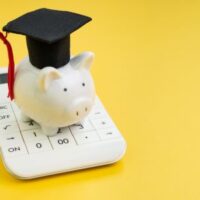Student Loan Discharges in Chapter 13 Bankruptcies

When a person in South Florida files for Chapter 13 bankruptcy, they are often filing for this type of bankruptcy because they have secured property that they want to keep (such as an automobile), they want to stop a foreclosure and remain in their home (which Chapter 13 allows a person to do), and/or they are ineligible to file for Chapter 7 bankruptcy but still need bankruptcy protection. Unlike in a Chapter 7 bankruptcy case, assets are not liquidated and debtors do not receive a quick discharge of remaining eligible debt. Rather, through a repayment plan that usually lasts three to five years, a debtor must make regular monthly payments that go toward repaying their debts, and at the end of the repayment period, remaining eligible debts may be discharged. To be clear, Chapter 13 still involves a discharge at the end of the case, but the debtor repays a portion of their debts over the course of the repayment plan, and some types of debts must be repaid in full.
What does all of this mean for student loan debt in a Chapter 13 case? In short, can you be eligible to have student loans discharged at the end of your Chapter 13 case? The answer to the question is yes, but it is important to learn more about Chapter 13 bankruptcy and how student loan debt will be addressed.
Understanding Chapter 13 Bankruptcy
To understand how your student loan debt will be treated in a Chapter 13 bankruptcy case, it is important to learn more about how debt is treated in a Chapter 13 case more generally.
In Chapter 13 bankruptcy cases, monthly payments in a repayment plan are based on a number of factors, including your disposable income, the amount of secured debt you have when you file for bankruptcy, and applicable bankruptcy exemptions. Secured debts must be paid in full in a Chapter 13 case, as well as priority debts. In general, unsecured priority debts include any past-due family support payments (like child support) and certain tax debts. Student loan debt is not a priority debt. Accordingly, you may be able to have any remaining student loan debt (which could be all of your student loan debt) discharged at the end of a Chapter 13 case.
Understanding the New Student Loan Discharge Process
With the new process in place for having student loans discharged in a bankruptcy case, debtors go through a much easier adversary proceeding. Now, a debtor will fill out an attestation form with financial information, which will be reviewed by Department of Justice lawyers who can make a recommendation for discharge to the bankruptcy court.
If you are planning to file for Chapter 13 bankruptcy and want to have your student loans discharged, talk to an attorney about how you can move forward.
Contact a West Palm Beach Bankruptcy Attorney Today
If you have any questions about how your student loan debt will be treated in your consumer bankruptcy case, do not hesitate to get in touch with one of the experienced West Palm Beach bankruptcy lawyers at Kelley, Fulton, Kaplan & Eller. We can answer any questions you have about student loan discharges more generally, and we can assess your financial circumstances to help you understand whether you may be eligible to have your student loans discharged through the new process. Contact us today for assistance with a bankruptcy case involving student loans.
Sources:
uscourts.gov/sites/default/files/form_b_122c-2.pdf#:~:text=33a%20through%2033e.-,To%20calculate%20the%20total%20average%20monthly%20payment%2C%20add%20all%20amounts,Then%20divide%20by%2060
justice.gov/d9/pages/attachments/2022/11/17/student_loan_discharge_guidance_-_fact_sheet_0.pdf
law.cornell.edu/uscode/text/11



